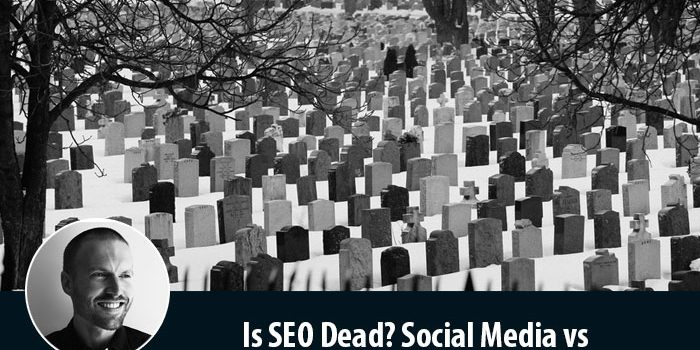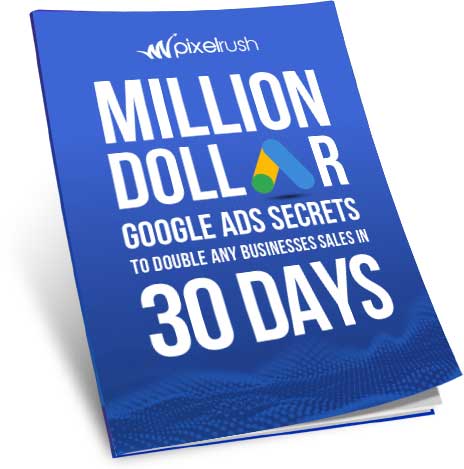You can see the irony in that sentence if you’ve found this post via Google right? The question is being asked however, has Social Media killed SEO? Social Media is like crack, everybody is glued to their phones accessing every platform from wherever they are in the world.
- People are using it while waiting for their train
- They’re using it while shopping for groceries
- Employees are constantly consuming it at their desks
It’s incredibly powerful and it makes sense that we shouldn’t ignore the power of it from a marketing and sales perspective. Could Social Media be the natural evolution of SEO with customers no longer searching for content but instead be presented with the products, sales and services that directly relate to what is occurring in their life at this very instant. I mean, just take a look:
- Radio pinched its viewers from print
- TV stole listeners from radio
- The internet came along and changed everything
Could we live in a world where we post a status update “My bathroom just flooded ARGGGHH” before we instantly see adverts for Plumbers appearing in our social feeds? In some ways we already see this happen and Facebook has a way of picking up on your interests and offering services based on events happening in your life. It’s could be the real life Truman show.
Let’s focus on the now though and the fact is that SEO is still alive and with well over 5,922,000,000 Google searches in 2013 it’s safe to say that search engines aren’t going anywhere for a long time yet. Based on what we’ve seen historically with print, radio and tv advertising is still alive and well, they might not have the same impact but they’re still used! The difference is likely the price point and affordability now of the older style advertising mediums incomparison to the new social media juggernaut.
So should we forget about SEO and focus purely on Social Media for sales and marketing of our business?
Absolutely not!
Intent: Browsing vs Searching
There was an excellent article posted recently on SearchEngineJournal.com highlighting the key differences between Facebook and Google when it comes to advertising and promotion.
When users search on Google they have a specific intent in mind, which often boils down to knowing, going, or doing. Each one of these intents is a type of question which requires a specific answer
People on Facebook use the social network with varying intent. They do not go to Facebook to answer a question, get directions, or perform an action. According to a recent study, the number one reason users are on Facebook is to be entertained (number two is to kill time). They are browsing around looking for entertaining, interesting, or engaging pieces of content. If you are trying to sell to users whose intent is to browse and be entertained and engaged, they are not going to buy.
In other words people who are using Google are looking for something. It could be services, products, knowledge, news and much more. On the other hand you have Facebook where people typically go to be entertained, kill time and stay connected with the brands, celebrities and things that they love. You can’t expect to apply the same techniques and strategies to Facebook as you would use for Google.
Understanding the intent, purpose and goals of your campaign is critical for success, whether it’s SEO or Social Media it doesn’t matter.
Keywords vs Quality
The old days are long gone where you could stuff your website full of keywords and deliver hundreds of visitors to your website each day. We now receive less and less information about the keywords that have brought visitors to our website which shows that Google is trying to move away from “spammy techniques” and start rewarding “high quality content” intead. This doesn’t mean that SEO is dead is just means that the approach has changed in the way businesses should be targeting the traffic within.
SEO Optimisation now means focusing on humans rather than simply keyword stuffing. It’s likely your short-term success will be less but your long-term could be far greater.
It’s simple, develop high quality and entertaining content for your target audience and you’ll be able to attract visitors from search engines and social media, all at the same time. Sure, maybe you’ll deliver the content differently on each platform but the information and value should remain the same. Think less about search engines and more about humans and you’ll see a far greater uptake in what you’re offering.
The same could be said for Social Media, if your content delivery is boring or it feels like all you do is spam your services then your engagement will surely decrease. It’s not about you it’s about how you can help those who follow you. You’ll need to find a reason for people to subscribe and how you can develop a human relationship with those that do.
For example, if you’re in real estate think about regular videos updating viewers on the state of the housing market or if you’re in fashion develop content that discusses that latest trends and highlights the products for each season. Be a rock star so to speak. You have the opportunity to show the world who you are, your personality and humour while highlighting your knowledge and experience all at the same time. It’s not about hard selling it’s about connecting on a deeper level.
Cost vs Time
There is no easy win, both SEO and Social Media will require a commitment of your time and it doesn’t matter if your method for gaining traffic is organic or paid because in the end it costs money. The success that you’ll have from either methods is highly dependant on the type of business you have, the kind of person you are, the level of competition and whether your customers will respond to what you’re doing.
There is no right or wrong or black and white, what works for you won’t necessarily work well for somebody else.
Search engines allow you to develop content and continuously reap the reward of traffic over time. As long as your information remains current you have an opportunity to bring visitors to your website. With the volatility and competition within search engines it’s far from a passive time source however and as soon as you stop your competitor’s will overtake you. You cannot simply write a chunk of traffic, receive traffic, and then expect so levels to remain the same.
With social on the other hand, again it depends on the platform, but typically the further time passes the less likely it is that people will find your content. It’s buried in the mass of updates that are published to each platform daily. What is important is that your content is visible at the times when your customers are most active.
When you’re using content on your website in conjunction with social media you can always benefit from both. Just because you’ve posted content once to social media doesn’t mean that you can’t reuse it and refresh your feeds with old and new information.
The Truth?
If you’re looking for a decision to invest your time and money purely in Social Media or SEO and forget the other, you’ve got it all wrong. The truth about SEO and Social Media is that they go hand in hand, there is no competition, and both of them are just a tool in your arsenal of weapons that will get eyes on what you do. It’s about using whatever you can to project your voice and get your business found and then optimising the process to convert the highest percentage of traffic into income.
While people are still using Google, and search engines, to find what they need it makes sense that your website should be given the best chance of discovery. The term “search engine optimisation” might be a little grey as your goal should always be to optimise for humans, your customers, not robots and computers. Forget about keywords and focus on delivering the kind of service and advice that you’d give to me if I was to call or arrive on your doorstep with the aim that should always be directing traffic to your website or landing page where the conversion can occur.
Different businesses, products and industries have success on different platforms and it’s your job to accurately test and measure your efforts so that you can clearly understand the return on investment.





